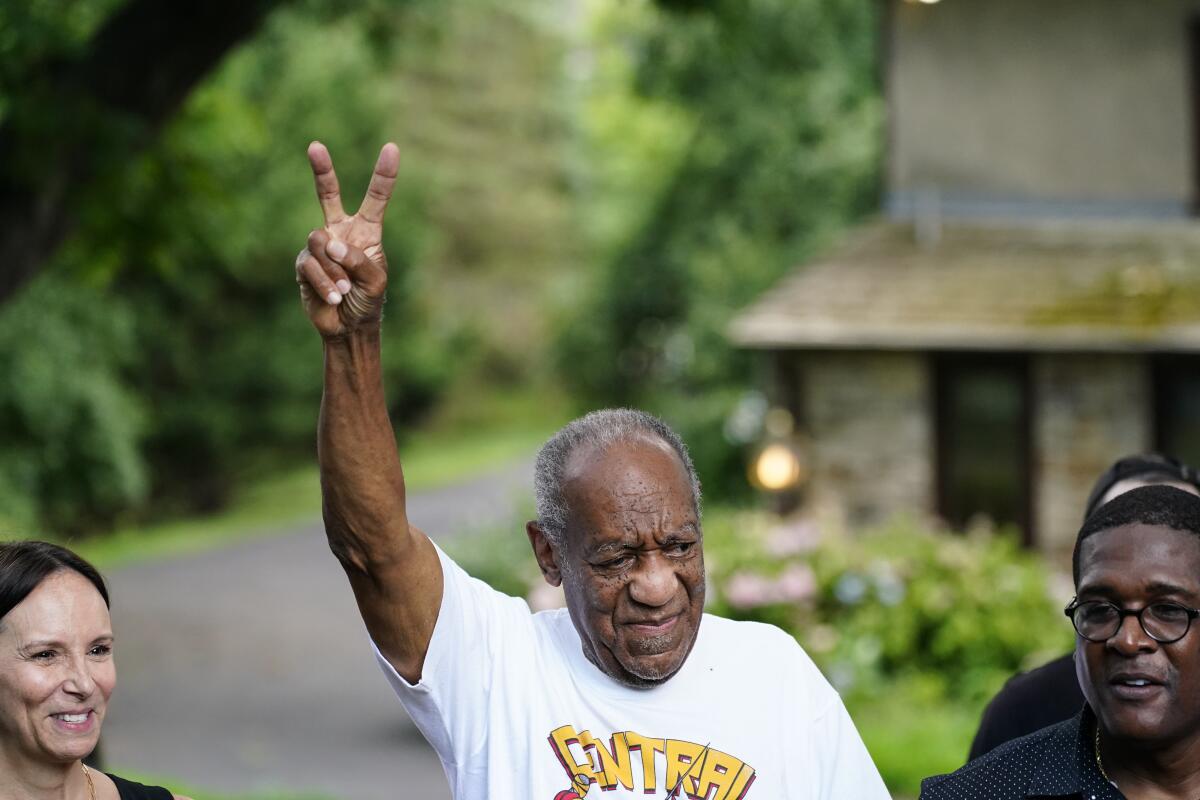Bill Cosby may well be a predator. But here’s why releasing him was the right move

- Share via
It’s understandable to see the Pennsylvania Supreme Court ruling that scrapped disgraced entertainer Bill Cosby’s sexual assault conviction and freed him from prison as an injustice to his accuser in the case, and to the dozens of other women who told of being drugged and raped by a man once known as “America’s Dad.”
The nation and its legal system have a long history of protecting male predators in positions of power and dismissing the statements by countless women whom those men have abused, demeaned and raped. Cosby’s 2018 conviction on three counts of aggravated indecent assault against Andrea Constand was a breakthrough of sorts, and a landmark in what became known as the #MeToo movement against sexual assault and harassment. Wednesday’s ruling feels like an unwelcome and inappropriate exoneration for Cosby and a repudiation of Constand and the many others who say Cosby victimized them.
But it’s none of those things. Cosby has been exonerated of nothing. And if there is any repudiation to be found in the court’s opinion, it is certainly not of Constand. It’s a rebuke instead of two criminal prosecutors — the one who opted against charging Cosby in 2005, in effect compelling him to testify in civil proceedings, and the one who pushed forward with criminal charges more than a decade later despite the prior deal.
And yes, the court ruled, there was indeed a deal, even if it wasn’t documented in writing. When a prosecutor promises not to prosecute, and the accused reasonably relies on that promise to testify despite his constitutional right not to, there is a bargain that prosecutors cannot lawfully breach.
That’s as it should be. Criminal prosecutors have such enormous power over people’s lives and liberty that their assurances to defendants must be granted “special weight,” in the Pennsylvania court’s words. To permit prosecutors to make promises, extract testimony or other evidence in return, and then break those promises would be an egregious and unjust exercise of governmental power against an individual, whether that person is guilty or innocent.
The nation is currently undergoing a reassessment of the enhanced powers that lawmakers granted to prosecutors over the last half-century in response to their constituents’ fears of rising crime. Prosecutors can too easily be tempted by the belief that protecting the public from criminal predators is worth some cheating every now and then. But if the courts look the other way, occasional cheating turns into oppression exercised by the powerful against the vulnerable — exactly the opposite of the goal of a constitutional system of justice.
It’s maddening whenever a person widely believed to be guilty is released as a result of the courts catching and correcting prosecutorial excesses. But it’s a vastly better system than one that locks people up because prosecutorial excesses go unchecked.
More to Read
A cure for the common opinion
Get thought-provoking perspectives with our weekly newsletter.
You may occasionally receive promotional content from the Los Angeles Times.









